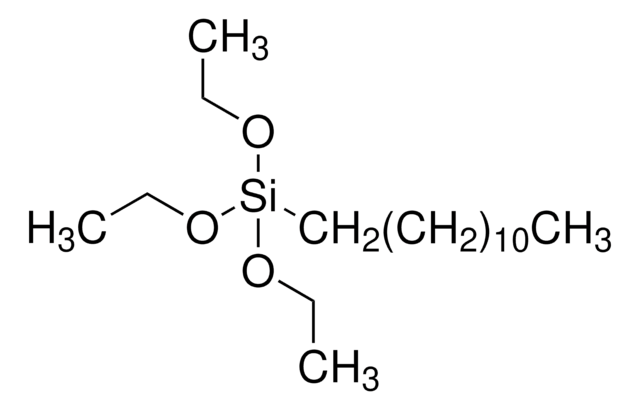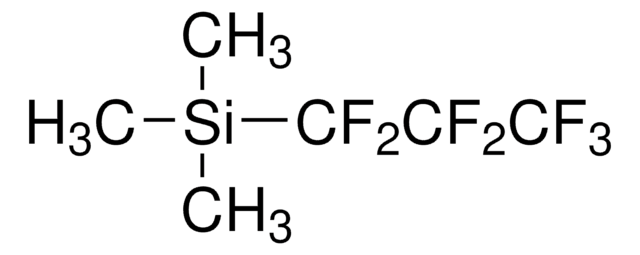658758
1H,1H,2H,2H-Perfluorodecyltriethoxysilane
97%
Synonym(s):
Triethoxy-1H,1H,2H,2H-perfluorodecylsilane
About This Item
Recommended Products
Assay
97%
form
liquid
refractive index
n20/D 1.342
bp
209-230 °C
density
1.389 g/mL at 25 °C
SMILES string
CCO[Si](CCC(F)(F)C(F)(F)C(F)(F)C(F)(F)C(F)(F)C(F)(F)C(F)(F)C(F)(F)F)(OCC)OCC
InChI
1S/C16H19F17O3Si/c1-4-34-37(35-5-2,36-6-3)8-7-9(17,18)10(19,20)11(21,22)12(23,24)13(25,26)14(27,28)15(29,30)16(31,32)33/h4-8H2,1-3H3
InChI key
MLXDKRSDUJLNAB-UHFFFAOYSA-N
Looking for similar products? Visit Product Comparison Guide
General description
Application
Signal Word
Danger
Hazard Statements
Precautionary Statements
Hazard Classifications
Acute Tox. 4 Inhalation - Acute Tox. 4 Oral - Carc. 2 - Eye Dam. 1 - Lact. - Repr. 1B - STOT RE 1
Target Organs
Liver
Storage Class Code
6.1C - Combustible acute toxic Cat.3 / toxic compounds or compounds which causing chronic effects
WGK
WGK 3
Flash Point(F)
>230.0 °F - closed cup
Flash Point(C)
> 110 °C - closed cup
Personal Protective Equipment
Certificates of Analysis (COA)
Search for Certificates of Analysis (COA) by entering the products Lot/Batch Number. Lot and Batch Numbers can be found on a product’s label following the words ‘Lot’ or ‘Batch’.
Already Own This Product?
Find documentation for the products that you have recently purchased in the Document Library.
Customers Also Viewed
Our team of scientists has experience in all areas of research including Life Science, Material Science, Chemical Synthesis, Chromatography, Analytical and many others.
Contact Technical Service















